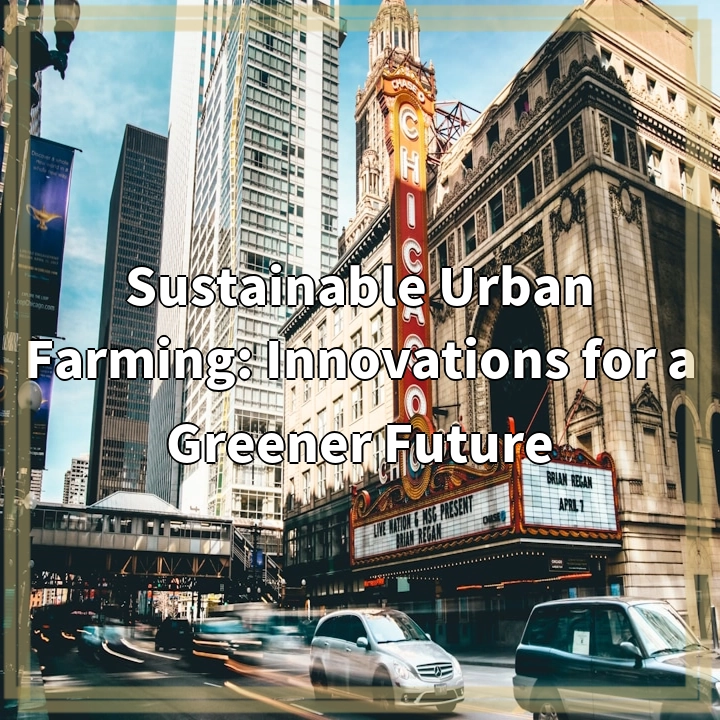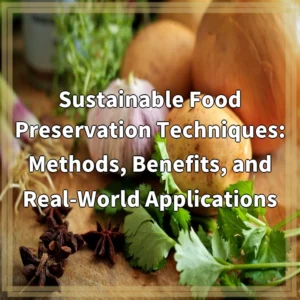
What is Sustainable Urban Farming?
Sustainable urban farming refers to the practice of growing and producing food in urban areas using environmentally friendly and resource-efficient methods. It involves utilizing limited space, such as rooftops, balconies, and vacant lots, to create gardens, farms, and even vertical farms. Sustainable urban farming aims to address food security, reduce environmental impact, promote local food production, and foster community engagement.
Real-World Problems Associated with Sustainable Urban Farming
While sustainable urban farming offers numerous benefits, it also faces several real-world challenges that need to be addressed. These include:
1. Limited Space:
One of the main obstacles faced by urban farming is the scarcity of available land. Urban areas are already densely populated and built-up, leaving limited space for agriculture. Finding suitable locations to establish urban farms and gardens can be a significant challenge.
2. Soil Quality and Contamination:
Urban soils are often contaminated with pollutants, including heavy metals and toxins. Remediating these soils and ensuring they are safe for food production can be costly and time-consuming. Additionally, the quality of soil in urban areas may be poor due to previous industrial or commercial use.
3. Access to Water:
Water scarcity can be particularly problematic in urban areas, where resources are already stretched. Finding sustainable and efficient ways to irrigate urban farms is crucial. Relying on traditional irrigation systems or municipal water supply may not be practical or environmentally friendly.
4. High Costs and Limited Financial Resources:
Starting and maintaining an urban farm often requires significant financial resources. Land, infrastructure, equipment, and ongoing maintenance costs can be prohibitive for individuals or communities with limited access to capital. Securing funding and finding sustainable revenue streams can be a challenge.
5. Legal and Regulatory Barriers:
Navigating the legal and regulatory frameworks around urban farming can be complicated. Zoning laws, building codes, and health and safety regulations may be restrictive or not designed to accommodate urban farming practices. Advocating for supportive policies and engaging with local government entities becomes crucial.
Conclusion
Despite the challenges, sustainable urban farming holds immense potential for creating greener and more resilient cities. By addressing the real-world problems associated with urban farming, communities can strengthen local food systems, improve access to fresh produce, and contribute to a more sustainable and equitable future.

Solutions for Sustainable Urban Farming
Addressing the challenges of sustainable urban farming requires innovative solutions and collaborative efforts. Here are some potential strategies to overcome the real-world problems associated with sustainable urban farming:
1. Vertical Farming and Hydroponics:
Utilizing vertical space and employing hydroponic systems can maximize productivity in limited urban areas. Vertical farming allows for growing crops in stacked layers, while hydroponics eliminates the need for soil, saving space and conserving water resources.
2. Soil Remediation and Improvement:
Implementing soil remediation techniques can help urban farmers address soil contamination issues. Techniques such as composting, raised-bed gardening, and using organic amendments can improve soil quality and fertility over time, enabling healthier plant growth.
3. Sustainable Water Management:
To mitigate water scarcity challenges, urban farmers can implement water-efficient systems, such as drip irrigation and rainwater harvesting. Additionally, utilizing greywater or recycled water sources can further reduce dependence on municipal water supplies.
4. Community Engagement and Partnerships:
Collaboration with local communities, nonprofit organizations, and government agencies can help overcome financial barriers. Establishing community gardens, initiating urban agriculture programs, and securing grants or sponsorships can provide the necessary financial support for sustainable urban farming initiatives.
5. Advocacy and Policy Change:
Engaging with policymakers and advocating for supportive policies is crucial for promoting sustainable urban farming. Encouraging the development of urban agriculture zoning laws, flexible regulations, and incentives for sustainable practices can create a conducive environment for urban farming to thrive.
Conclusion
By implementing these solutions and working collectively, sustainable urban farming can become a viable and productive method of food production in urban areas. These innovative approaches can help overcome the challenges and pave the way for a greener and more sustainable future in our cities.















